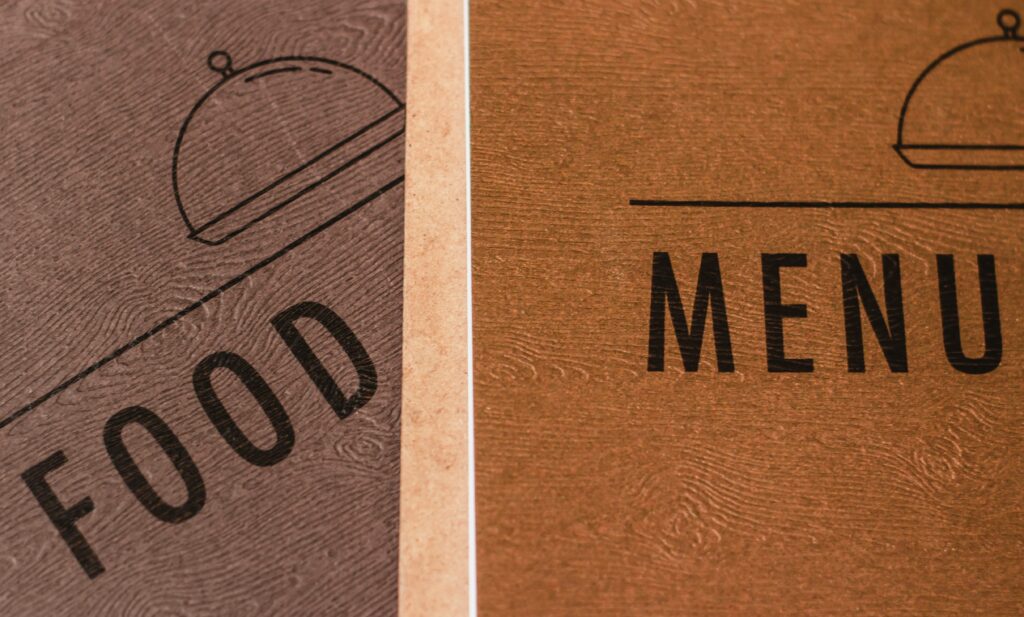Meal prepping isn’t about perfection. It’s about having a plan when your week gets loud. Prepping your food ahead of time gives you a buffer. You save hours you’d normally spend debating dinner or waiting in line for takeout. With a few hours on a Sunday, your weekdays run smoother.
It also cuts the nonsense. Buying just what you need, cooking in batches, and using leftovers well means less waste and fewer impulse buys. That’s good for both your wallet and your fridge.
Nutrition’s easier, too. When the right options are already packed in containers, you’re less likely to reach for a freezer pizza or mystery drive-thru meal. Prepping sets the default to healthy—even when life gets messy.
The big win? You avoid the last-minute scramble. Fewer bad decisions. More meals that actually make you feel good.
Before you start prepping, get clear on your goal. Are you trying to lose weight, bulk up, or just stop skipping meals? Your answer should shape everything from portion sizes to cooking methods. If you’re focused on muscle gain, think higher protein and carb-heavy sides. If it’s weight loss, lean into portion control and clean ingredients. If it’s pure convenience, focus on simple meals you can reheat without thinking.
Next, take a honest look at your schedule. If you’re working long hours or juggling a lot, don’t plan to prep 21 gourmet meals in one weekend. Know how many meals you actually eat at home and plan for those. Also consider any dietary needs—gluten-free, low-sodium, vegan, whatever works.
And if you’re new to all this, don’t overdo it. Start with prepping for just 2 or 3 days. You’ll learn fast what works and what doesn’t, and you won’t be stuck eating day-old broccoli on Friday just because you overcommitted on Sunday.
Micro-Niching for Loyal, High-Intent Audiences
The days of trying to appeal to everyone are done. In 2024, creators are getting sharp with their focus. Instead of just vlogging about fashion, they’re talking sustainable streetwear. Instead of generic travel, it’s vanlife for single dads who also cook. It’s about getting specific—and tapping into the people who truly care.
Smaller audiences aren’t a weakness. They’re more engaged, more loyal, and often more profitable. When you speak directly to a niche, your subscribers don’t just watch—they comment, buy, and share. Platforms like YouTube are picking up on this too. The algorithm is recognizing value in high engagement, not just high views.
Monetization gets cleaner with a dedicated crowd. Brands are willing to pay for access to well-defined communities. Merch sells better. Affiliate links convert faster. It’s not about casting a wide net anymore. It’s about finding the right pond.
Meal Prep Like a Pro
Weekly meal prep doesn’t have to be complicated. With a little planning and the right tools, you can set yourself up for stress-free eating all week. Here’s how to make batch cooking faster, safer, and more effective.
Set a Consistent Prep Time
Pick a regular day and time for meal prep. Many people choose Sunday, so they start the week prepared.
- Set aside 1 to 2 hours
- Keep it consistent each week for habit-building
Cook in Bulk
Choose food staples that can be used in multiple meals, and cook them in large batches. This keeps your fridge full and your time spent minimal during the week.
- Roast a variety of vegetables at once
- Bake chicken breasts or thighs
- Cook a big pot of rice, quinoa, or pasta
Use the Right Tools
A few key appliances can cut down on cooking time significantly. Stick to tools that speed up prep with minimal effort.
- Sheet pans for roasting large amounts quickly
- Air fryer for crisp results without babysitting
- Slow cooker for hands-off batch cooking
Store Smart
Good storage helps your food stay fresh and safe to eat.
- Invest in durable containers (glass or BPA-free plastic)
- Label each with a date to keep track of freshness
Creating a simple structure makes meal prep easier to stick with. The goal is not perfection, but consistency.
Meal prep doesn’t have to be complicated. Start with a few simple, repeatable meals you actually enjoy. Think burrito bowls, stir-fry, sheet pan meals. These should be easy to make and flexible enough that they don’t get boring after the third time.
Pick 2 to 4 core proteins, grains, and veggies that can rotate across meals. Chicken thighs, lentils, brown rice, broccoli—the basics are usually the most useful. Shop smart by choosing ingredients that show up in multiple meals throughout the week.
Keep your planning tight. Use a meal planner, either on paper or an app, to map out your menu before grocery shopping. This reduces waste, saves time, and makes it easier to stay consistent.
If you need ideas for cheap, nutritious meals that still taste good, check out this guide: How to Plan Budget-Friendly Meals Without Sacrificing Nutrition.
Meal prep only works if it’s practical. Start by dividing full meals into portable, grab-and-go portions. Use clear containers so you know exactly what’s inside and can grab one without slowing down your day. For food that won’t get eaten right away, go with freezer-safe packaging. Think ahead: cook once, eat multiple times.
Each portion should hit the basics—some protein, a smart carb, and healthy fats. Skip the guesswork and build your plates methodically. It saves time when you’re filming all day and don’t want to crash mid-edit.
And don’t forget snacks. Quick batches of homemade trail mix, energy bites, or even cut veggies with dip can save you from reaching for junk in between takes. All of it adds up to less waste, fewer decisions, and more time to focus on your content.
Smart Habits for Everyday Cooking
Busy schedules often leave little energy for creative meals. But a few small shifts can turn daily cooking into something more efficient, enjoyable, and aligned with personal goals. Here’s how to upgrade your kitchen habits without adding more stress.
Add Flavor Without Extra Steps
Spice blends are one of the easiest ways to transform a dish without extra prep time. They offer variety while keeping your process simple.
- Keep a few go-to blends on hand for different cuisines (e.g., Italian, Cajun, curry)
- Sprinkle on roasted vegetables, grains, or proteins before cooking
- Rotate blends weekly to keep meals interesting
Plan for Intentional Leftovers
Think beyond just dinner. Cooking a little extra now means you save time and energy later.
- Double recipes that store well
- Portion out individual servings for quick lunches
- Use leftovers in wraps, salads, or grain bowls to mix things up
Track Mindfully Without Obsessing
If you have specific health or nutrition goals, tracking can help. But it doesn’t have to become a full-time job.
- Use a simple app or food journal for awareness, not perfection
- Focus on overall patterns, not daily fluctuations
- Take breaks as needed to prevent burnout
Build a Monthly Recipe Rotation
When you find a recipe that works, don’t reinvent the wheel. Save time and mental energy by creating a rotating menu.
- Bookmark or file recipes that are fast, healthy, and well-liked
- Plan four weeks at a time, then repeat and adjust as needed
- Swap in seasonal ingredients to keep things fresh
With a few streamlined practices, everyday cooking can become less of a chore and more of a sustainable rhythm.
Flexibility is the name of the game. Any plan that ignores real life will fall apart fast. That means saving space for the spontaneous stuff — a late-night taco run, dinner with friends, or a sudden craving that hits hard. You’re not a robot, so your food plan shouldn’t act like one.
If something’s not working, swap it out. Hate quinoa? Drop it. Tired of chicken every night? Mix it up. Getting into a routine doesn’t mean locking yourself into meals that don’t fit your taste or schedule.
Pay attention to what’s actually being eaten and what keeps landing in the trash. That tells you what’s resonating and what needs to go. No judgment, just data. Use it.
Finally, your portions probably won’t be perfect out of the gate. Tweak them week by week. Too much food? Reduce. Still hungry at 4pm? Up the snacks. The goal isn’t rigid perfection — it’s a rhythm that fits your life, not fights it.
Weekly meal prep sounds intimidating, but it doesn’t need to be a flawless operation. Chop a few veggies, cook a couple proteins, portion leftovers—done. It’s not about perfection. It’s about showing up and getting something—anything—ready for the week.
Messy beats nothing every time. The goal isn’t Instagram-worthy containers or color-coded spreadsheets. It’s control. With a little prep, you avoid the last-minute fast food run, the skipped meals, the energy dips. You make better food choices because you’ve already made them in advance.
Stick with it for three weeks. That’s usually all it takes before your system becomes muscle memory. What was once one chaotic hour on Sunday buys back multiple quiet ones across your week. Less stress, more clarity, better fuel. That’s the trade.

